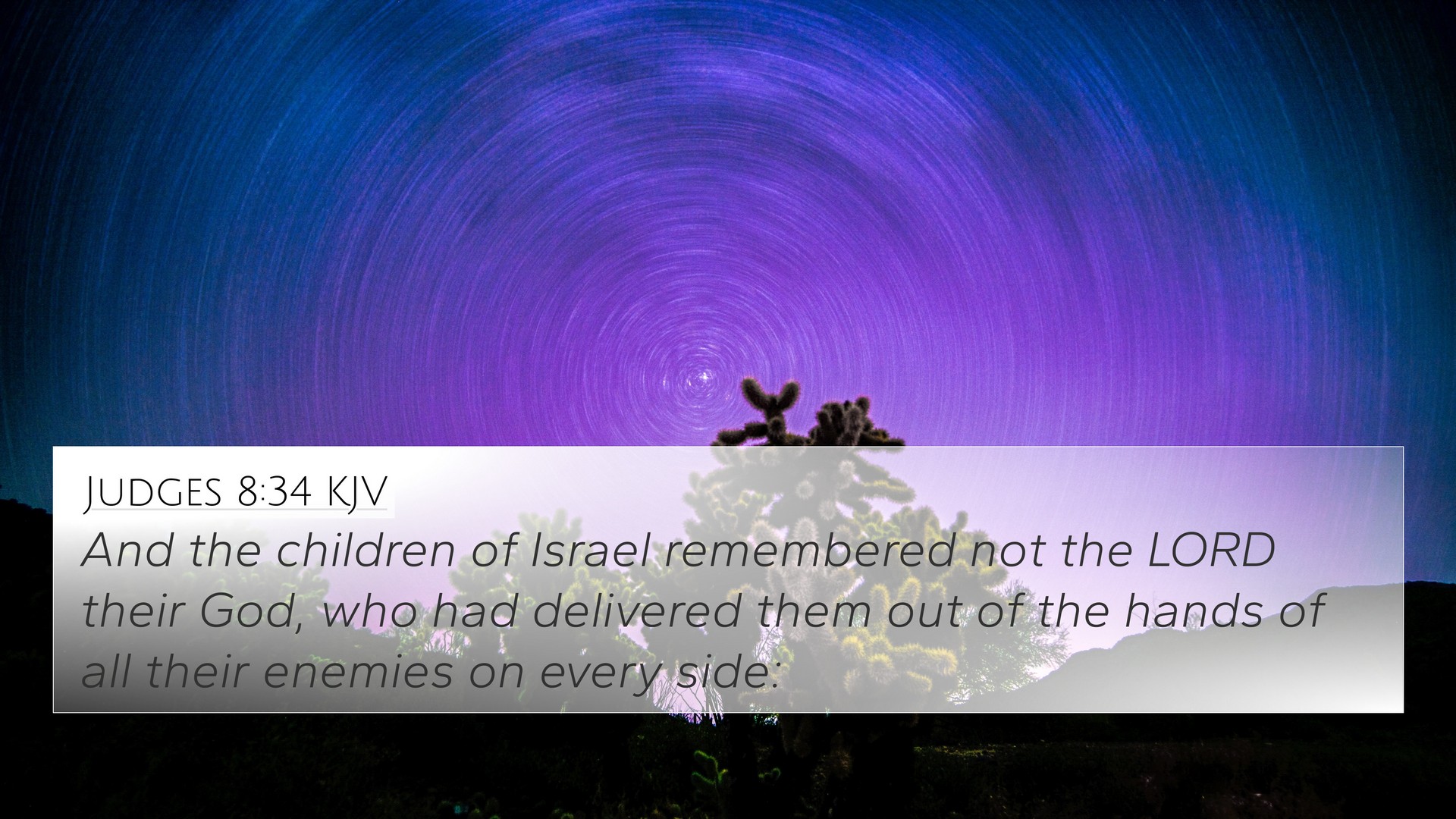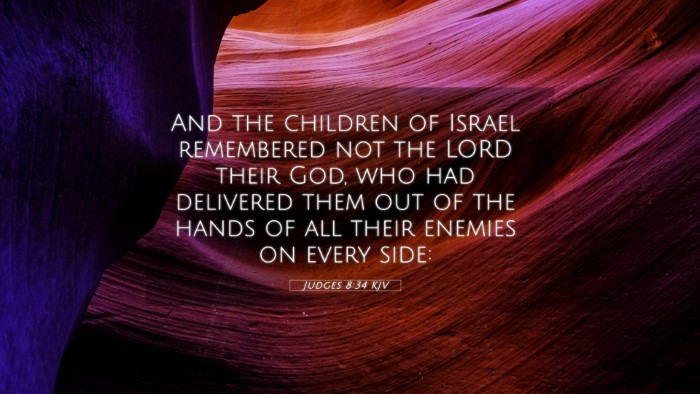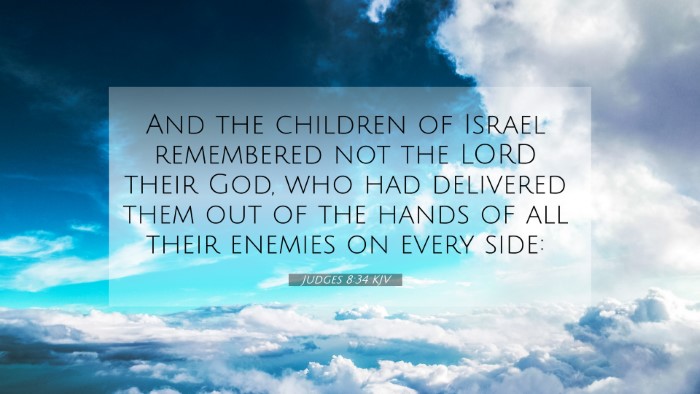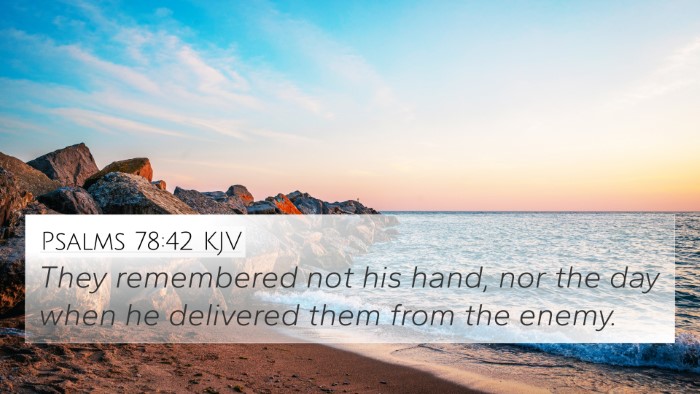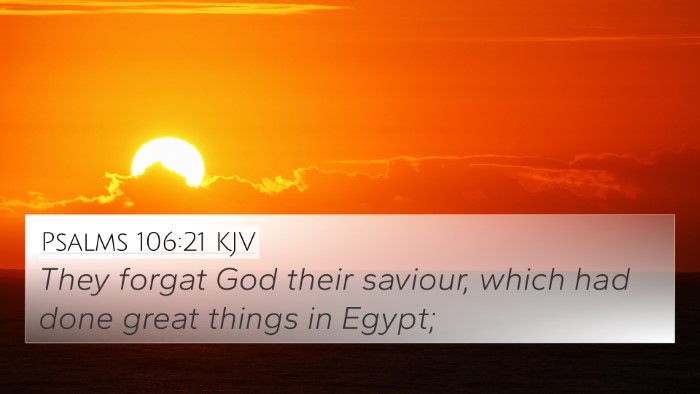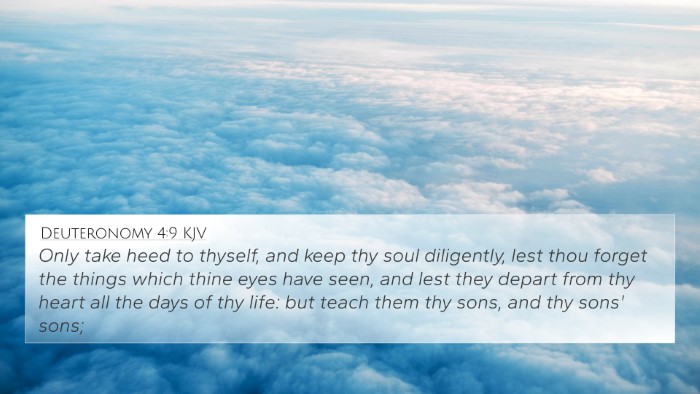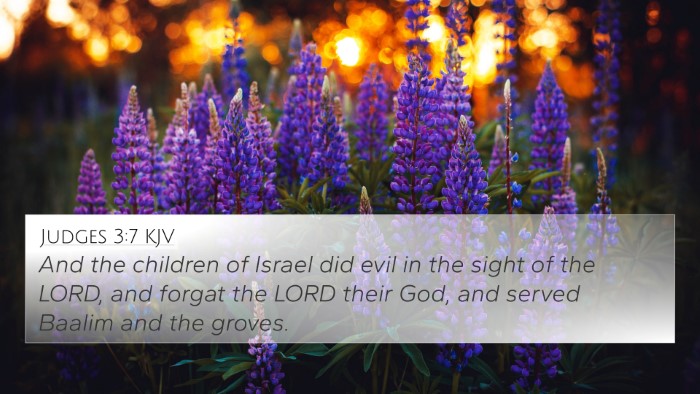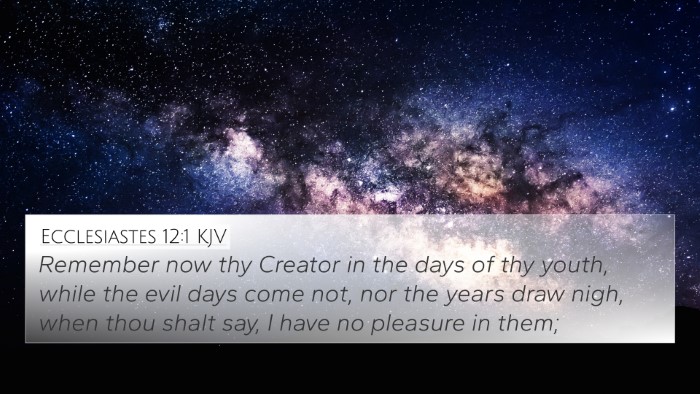Understanding Judges 8:34
Judges 8:34 states: "And the children of Israel remembered not the Lord their God, who had delivered them out of the hands of all their enemies on every side." This verse captures a critical theme within the Book of Judges: the tendency of Israel to forget God’s past deliverance and to stray from His commandments.
Summary of Biblical Insights
The verse serves as a reflective reminder of the covenant relationship between God and His people. Several public domain commentaries provide insights into its implications:
-
Matthew Henry:
Henry emphasizes the gravity of Israel's forgetfulness. He notes that it highlights a cycle of ingratitude that leads to spiritual decline. As God's people forgot their liberator, they opened the door to future disobedience and suffering.
-
Albert Barnes:
Barnes points out that this forgetfulness implies a lack of spiritual awareness among the Israelites. They were prone to idol worship and neglecting the God who had consistently protected and delivered them from oppression.
-
Adam Clarke:
Clarke discusses the historical context, relating it to the broader narrative of Israel’s journey through periods of bondage and liberation. He emphasizes that memory and gratitude are essential in maintaining a faithful relationship with God.
Significance of the Verse
This verse encapsulates the theme of divine mercy contrasted with human forgetfulness. It serves as a timeless reminder of the need for remembrance and acknowledgment of God’s works in our lives. The Israelites’ failure to remember led to further spiritual degradation, suggesting that intentional recollection of God’s goodness is vital for spiritual health.
Related Bible Cross References
This verse relates closely to various others that emphasize the connection between memory, gratitude, and fidelity to God. Consider these cross-references:
- Psalm 78:11-12 - "And forgat his works, and his wonders that he had showed them." These verses warn against forgetting God's miracles.
- Deuteronomy 6:12 - "Then beware lest thou forget the Lord, which brought thee forth out of the land of Egypt." This warns Israel about the dangers of forgetfulness.
- Isaiah 51:13 - "And forgettest the Lord thy Maker, that hath stretched forth the heavens, and laid the foundations of the earth." A call to remembrance of God's greatness.
- Psalms 103:2 - "Bless the Lord, O my soul, and forget not all his benefits." A directive to remember God’s blessings.
- Jeremiah 2:32 - "Can a maid forget her ornaments, or a bride her attire? Yet my people have forgotten me days without number." Portrays the degree of forgetfulness among Israel.
- Hebrews 2:1 - "Therefore we ought to give the more earnest heed to the things which we have heard, lest at any time we should let them slip." Encourages vigilance in remembering.
- 1 Chronicles 16:12 - "Remember his marvellous works that he hath done, his wonders, and the judgments of his mouth." Reinforces the importance of memory.
- Luke 22:19 - "And he took bread, and gave thanks, and brake it, and gave unto them, saying, This is my body which is given for you: this do in remembrance of me." A New Testament echo of remembering God’s provision.
- 2 Peter 3:1 - "This second epistle, beloved, I now write unto you; in both which I stir up your pure minds by way of remembrance." Encourages reflecting on God's messages.
Conclusion
Judges 8:34 serves as a powerful reminder throughout scripture about the importance of memory in the life of faith. It highlights a critical theme found in many passages throughout the Bible regarding human tendency to forget God’s mercies and deliverance. As we analyze this verse in conjunction with others, we recognize the imperative of maintaining our spiritual awareness and gratitude toward God’s enduring kindness and deliverance.
Tools for Further Study
For those interested in an in-depth study of biblical connections and cross-referencing, consider utilizing various resources:
- Bible concordance to identify keywords and themes across scripture.
- Cross-reference Bible study materials that allow for comparative study of verses.
- Comprehensive Bible cross-reference guides for exploring thematic connections.
- Use of Bible chain references to create a web of interconnected verses.
- Methods for identifying connections between the Old and New Testament verses.
